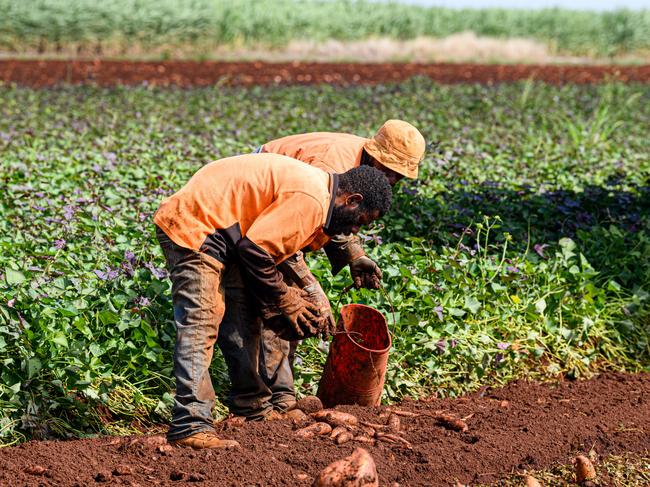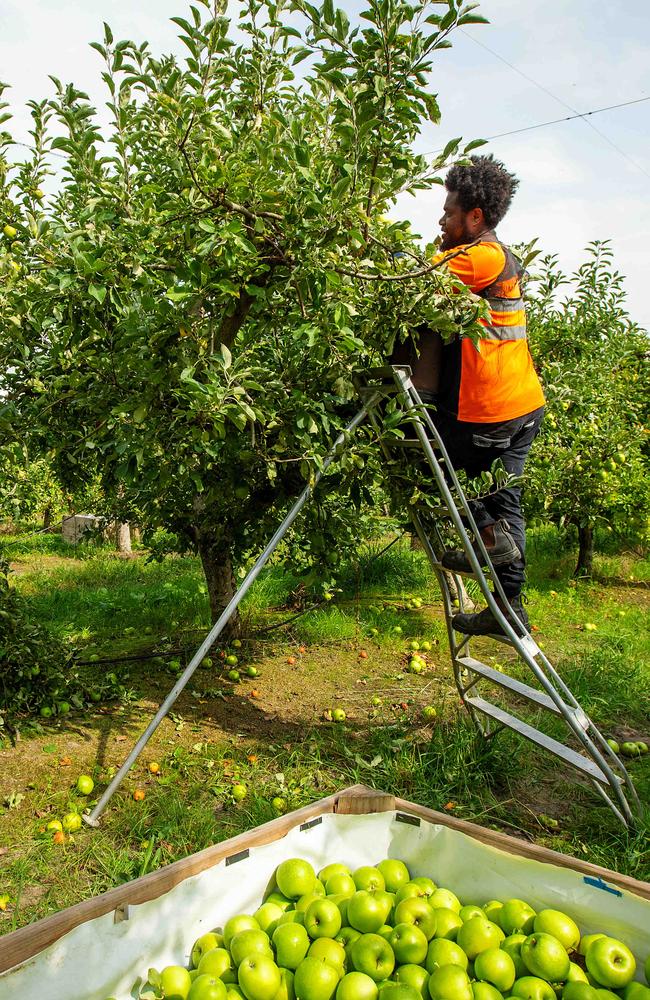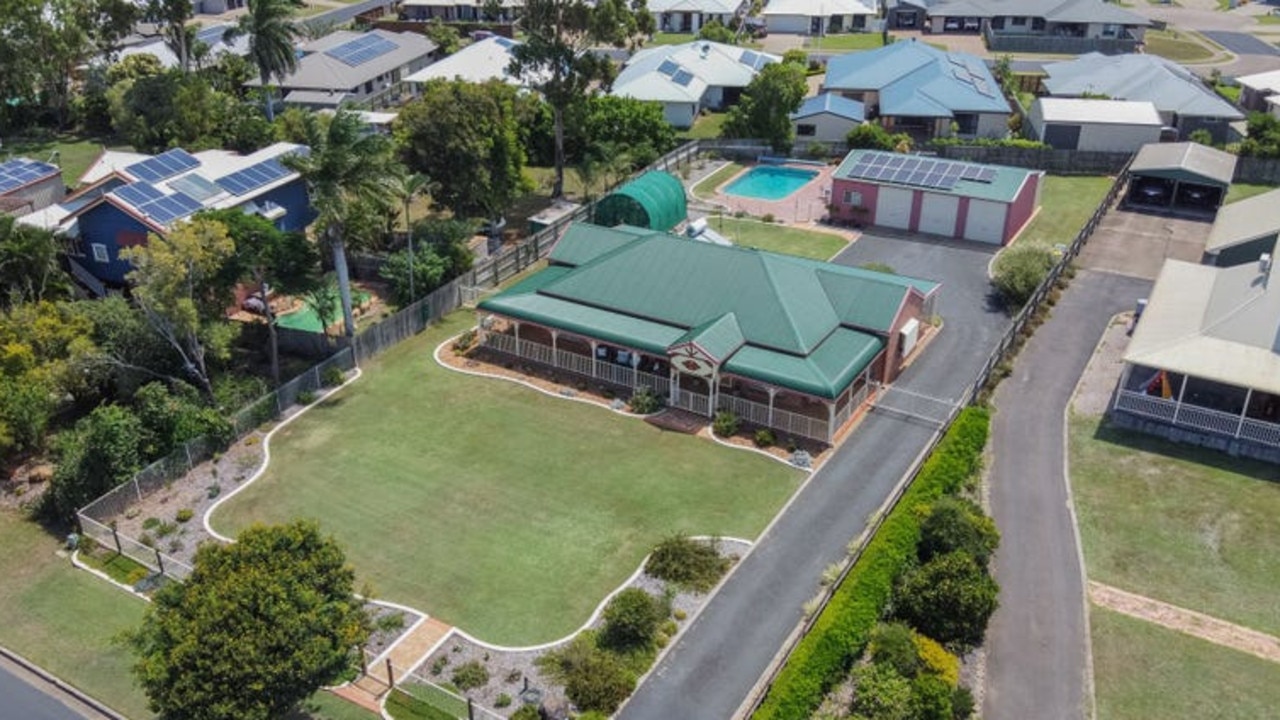Palm Scheme exploitation: Lawyer exposes abuse of Protection Visas in Bundaberg
An immigration lawyer has criticised the management of visa applications for overseas workers after one region was identified as the highest in the state for Permanent Protection Visa applications, many of which are rejected.

Bundaberg
Don't miss out on the headlines from Bundaberg. Followed categories will be added to My News.
An immigration lawyer who works pro-bono for some of the most impoverished immigrants in the country has criticised the Palm Scheme which he believes plays a large part in the abuse of Permanent Protection Visa applications for the Bundaberg region.
According to an October 2023 report from the Department of Home Affairs, the 4670 postcode had the highest number of Permanent Protection Visa applications in the state.
The visas are available to those “who are genuinely seeking protection due to a well-founded fear of persecution or a real risk they will suffer significant harm if they return to their home country.”
Between May 2022 and October 2023, 206 Permanent Protection Visas were lodged for the region, of which 151 were rejected.
Brian Kelleher of Kelleher Immigration spoke on the significant applications in the region, and believes he knows why so many are rejected.
Mr Kelleher has spent years travelling the country, with places such as the Bundaberg and District Neighbourhood Centre often working pro-bono to support those left impoverished by the process.
“Everyone I have seen in Bundaberg is not eligible, but they are applying for them anyway,” he said.
As a migration agent, Mr Kelleher noted Protection Visas are seldom approved and those that do receive approval often undergo multiple rounds of assessment.

“Protection Visas are extremely hard to get because you’ve got prove that you cannot return to your home country due to reasons for persecution based on your nationality, your ethnicity, religion, political beliefs, social groups, gender.”
Mr Kelleher frequently supports individuals post-visa application, asserting that the Protection Visas low cost ($45) and prolonged processing time make it susceptible to exploitation by those seeking to abuse the system or take advantage of the uninformed.
He has seen applications lodged on behalf of hopeful immigrants who are charged hundreds of dollars, naively placing trust in those who have a better understanding of the system or can at least read and write.
“The vast majority of these (Protection Visa applications) that I see from Bundaberg have no merit at all,” he said.
“They know nothing about the application except that someone did it for them. They’re left high and dry by whoever lodged the application for them.”
In his experience, many of those rejected by the Protection Visa are already working in the country under the Palm Scheme and apply with a desire to stay or simply leave the constraints of the scheme.
The Pacific Australia Labour Mobility (PALM) scheme, a federal initiative, allows eligible businesses to hire workers for short or long-term jobs from nine Pacific Islands and Timor-Leste for rural and farm workforces with seasonal job opportunities.
Mr Kelleher has said anecdotally many of the Protection Visas are lodged for the scheme workers by those associated with the farm, with the applications often having falsified information applicants know nothing about.

“So, they find that their application is not being processed fast enough and they come to me for advice,” he said.
“My advice is always; they’re never going to get this visa, they were never going to get this visa.”
When discussing the high numbers of applications the 4670 postcode, Mr Kelleher believed it came down to the agricultural employment opportunities in the region.
However, he was critical of the Palm Scheme which allows low-skilled workers who would not otherwise be accepted as residents in Australia to apply for visas which they would never be approved, putting pressure on community resources such of those at the Neighbourhood Center.
“It’s extremely frustrating to me on a personal level, because I want to assist people who can’t afford legal advice,” he said.
“They’re applying for Protection Visas because they don’t want to work for the people they’ve been appointed to through the Palm Scheme, or they’ve been told that they will have better chances of migrating permanently by applying for a Protection Visa.”
Mr Kelleher said employers were also unlikely to take on permanent staff waiting for residency under bridging and temporary visas, further contributing to a state of poverty for those waiting on a visa which will never be approved.

He was critical of employers who abuse immigrants naivety, or make misinformed decisions to fill out Permanent Protection Visas in a desperate bid to keep workers.
Additionally, Mr Kelleher said he believes the Palm Scheme needs to be reviewed, as many who are applying for additional visas appear to be doing so out of a desire to leave the scheme due to an inability to afford to send money home after paying high accommodation, transportation and administration costs.
“I would like to sees employers who are part of the Palm Scheme become aware of what is happening and at least educated by the Home Office” he said.
“Maybe even fines, because it is making a mockery of the Palm Scheme.”
A spokesperson from the Department of Employment and Workplace Relations commented on the concerns raised by Mr Kelleher and said employers are required to meet the scheme’s minimum standards of security, comfort and safety.
“Accommodation must be provided ‘at cost’, represent fair and good value for workers, and not cost more than a reasonable proportion of worker’s income,” a spokesperson said.
“These standards are set out in the PALM scheme employer guidelines and the government assesses all employer transport and accommodation plans to ensure those standards are met, including considering if costs are reasonable.”
The Department of Home Affairs was contacted for a comment but did not respond by deadline.




